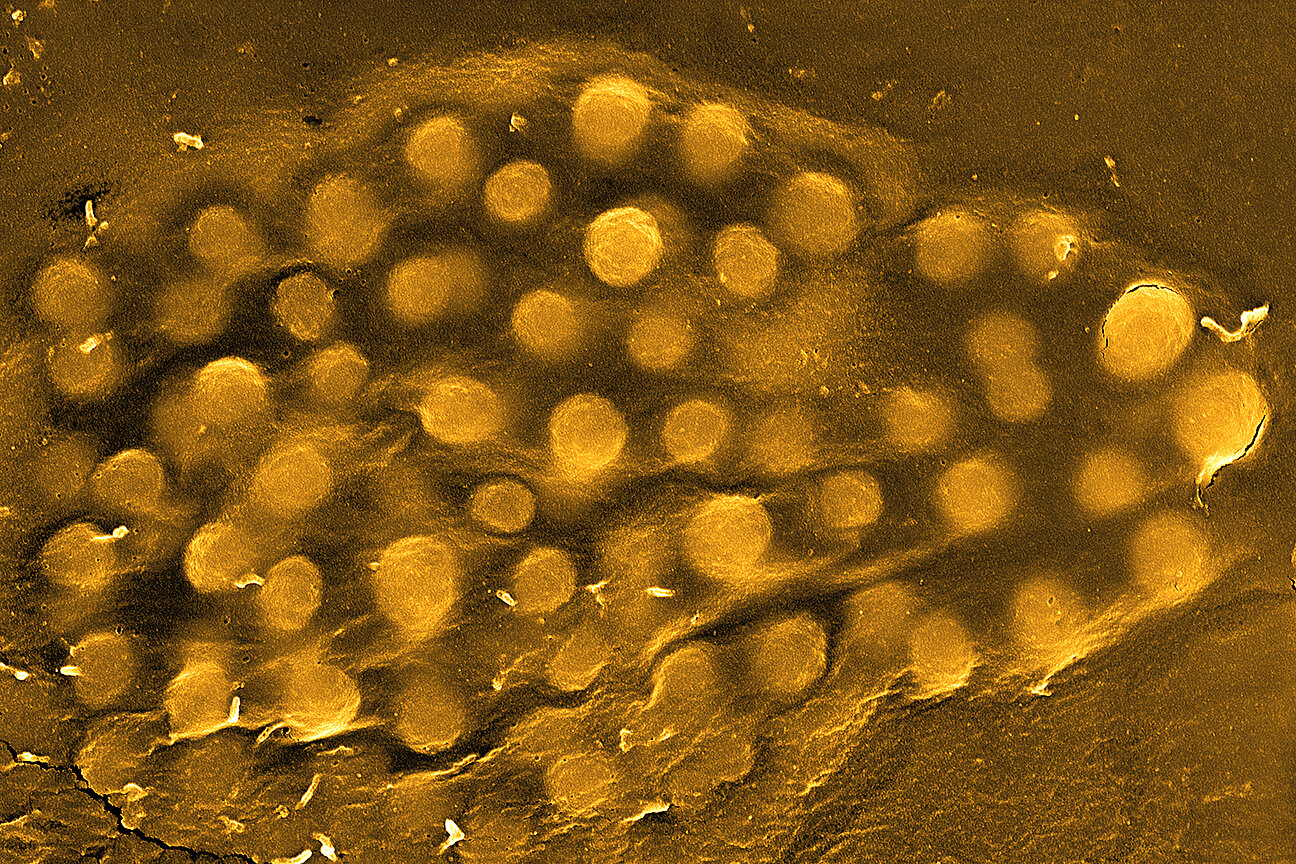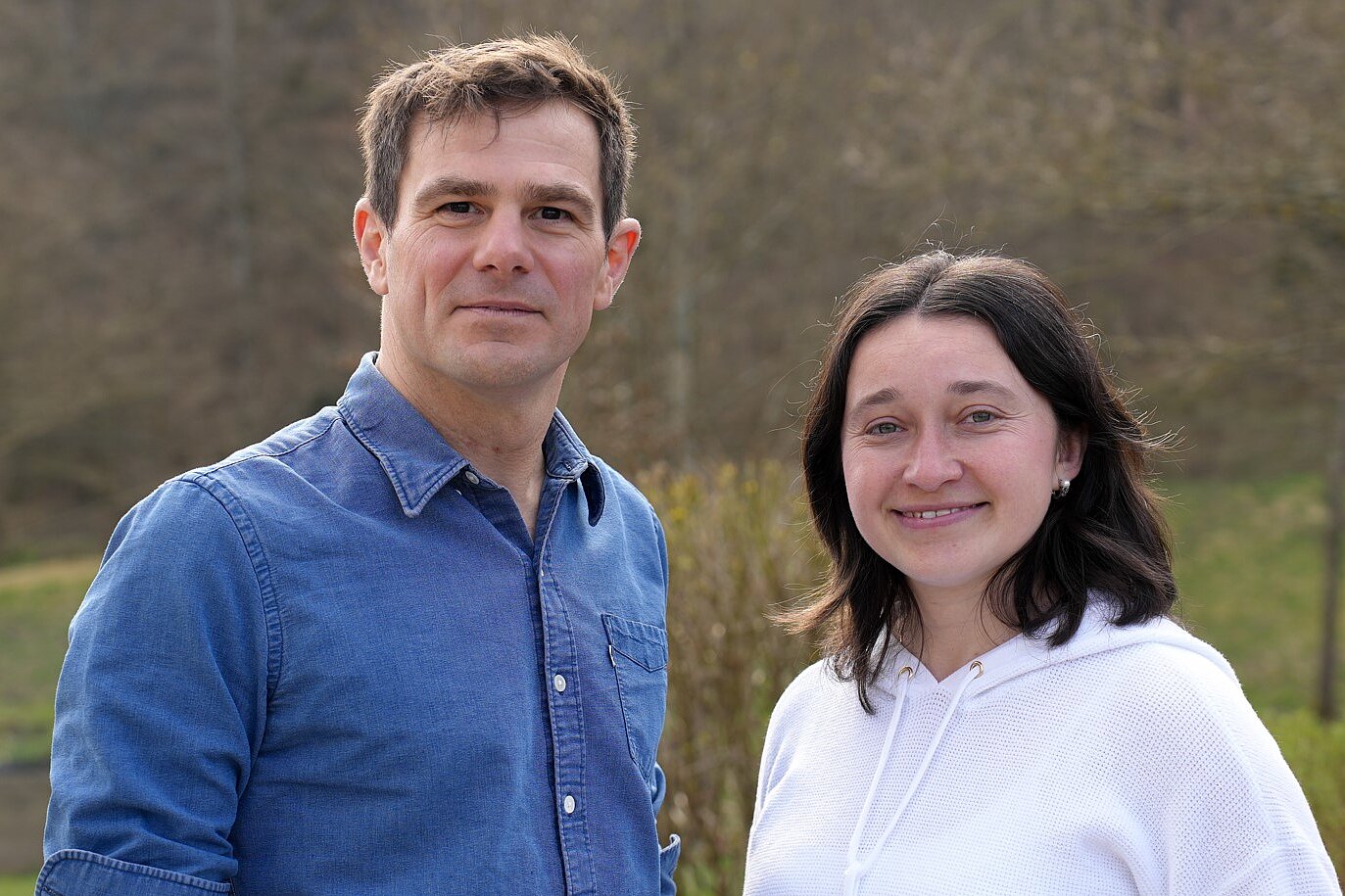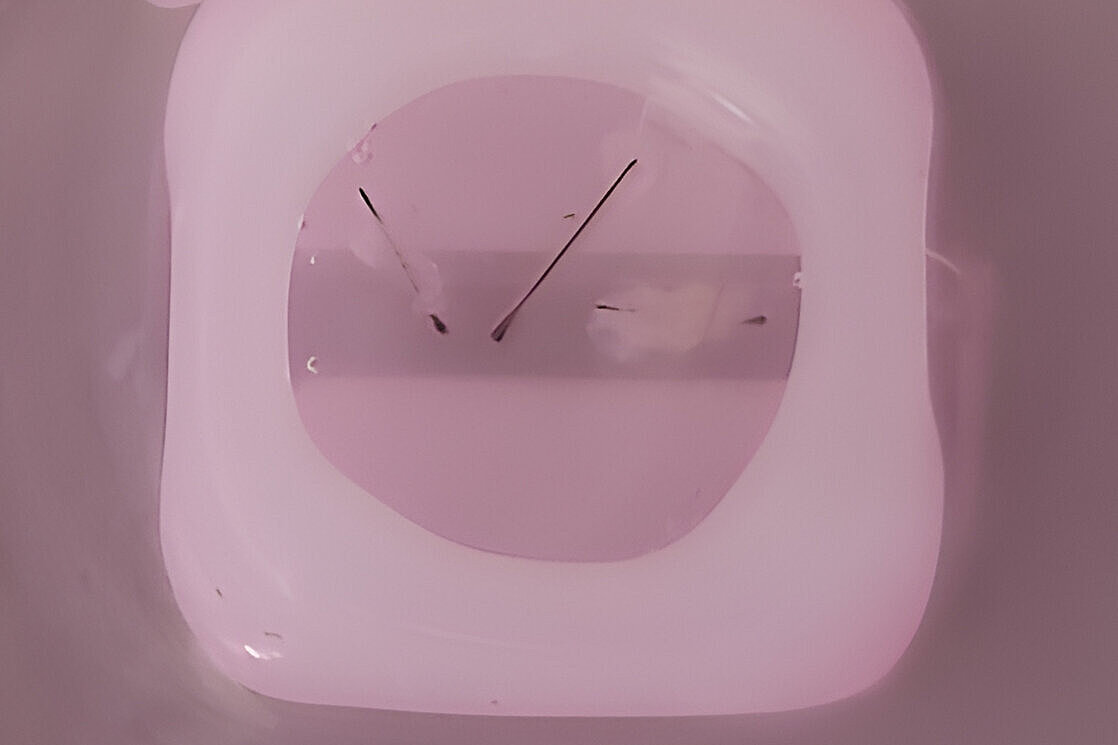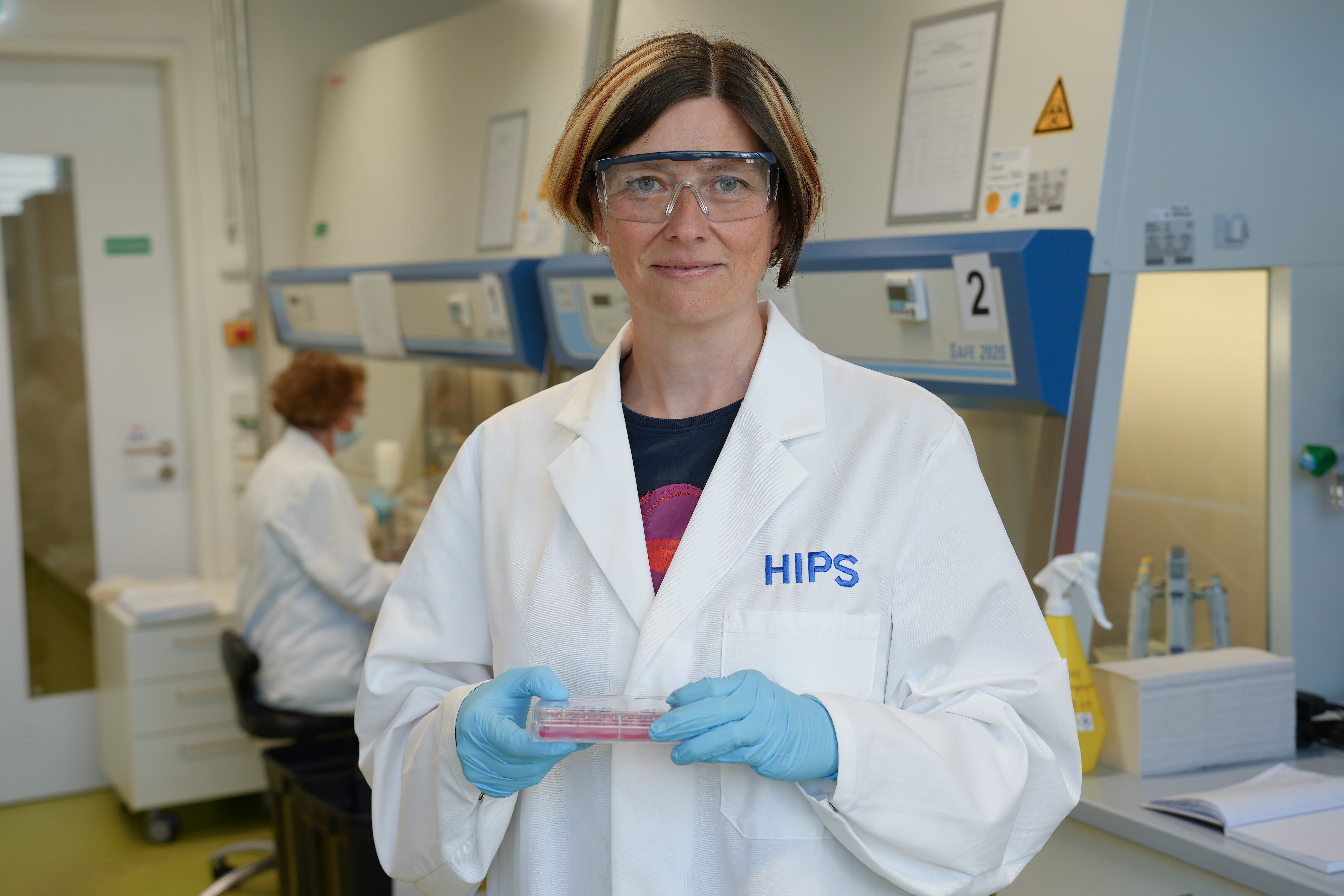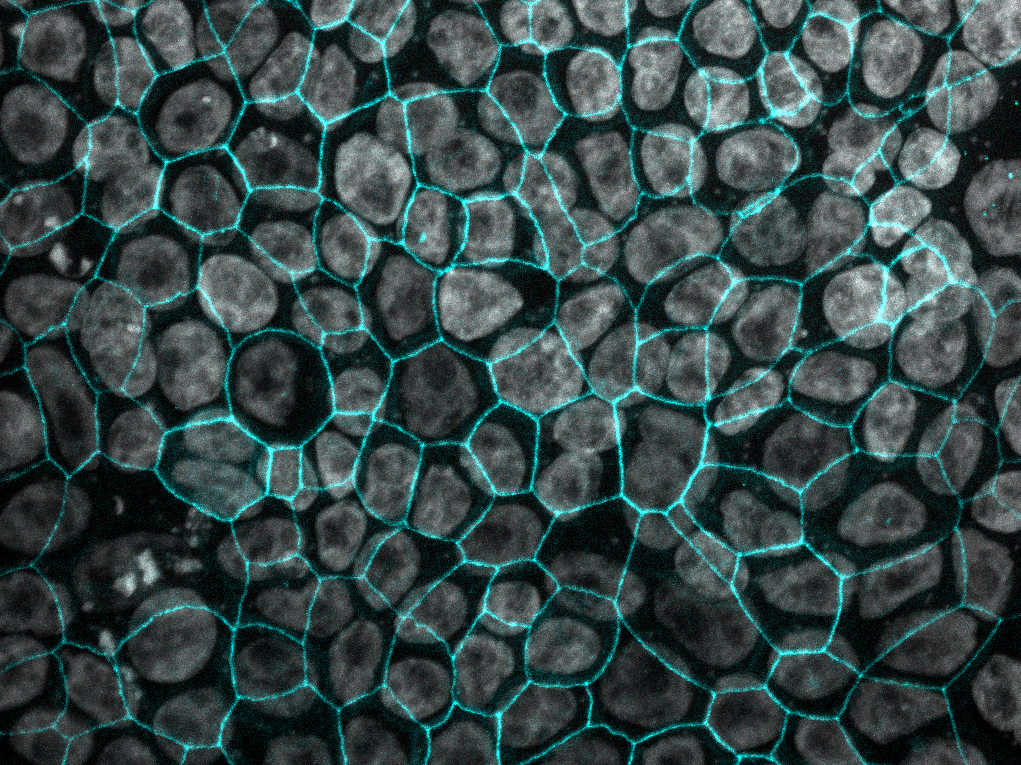
Biological Barriers and Drug Delivery

Our Research
Although there is already a huge number of different medicines, the search for novel drug candidates is more and more an important field in pharmaceutical research. Besides a lack of existing medications against various severe diseases, the number of pathogens that are resistant to frequently used drugs is still increasing. Advances in molecular biotechnology and medicinal chemistry have led to the discovery of new drug candidates.
However, developing these molecules into actual pharmaceuticals first requires screening of their biochemical properties and their ability to cross biological barriers such as the lungs, the gastro-intestinal tract and the skin. Second, scientists have to establish new technologies to ensure the safe and effective delivery of the drug candidate to the site of action, as for example the site of infection or components of the immune system.
Research on biological barriers
Therefore, the main focus of the department “Drug Delivery” is, on the one hand, on the exploration of biological barriers themselves. On the other hand, a major approach consists in developing appropriate carrier systems that are capable of crossing these barriers and deliver the active molecule to the target. Furthermore, the department expands this approach by creating new experimental models of higher sophistication and relevance for investigating the mechanisms, treatment and prevention of infectious diseases.
Expansion of nanotechnology
In parallel, the nanotechnology platform is to be advanced and broadened in terms of formulating multifunctional nanocarriers that allow tracking of the carriers, targeting to the site of action and release of the payload in a controllable manner in both the model as well as the organism. Last but not least the carrier systems are safely biodegraded and excreted from the body.
Our Research
Although there is already a huge number of different medicines, the search for novel drug candidates is more and more an important field in pharmaceutical research. Besides a lack of existing medications against various severe diseases, the number of pathogens that are resistant to frequently used drugs is still increasing. Advances in molecular biotechnology and medicinal chemistry have led to the discovery of new drug candidates.
However, developing these molecules into actual pharmaceuticals first requires screening of their biochemical properties and their ability to cross biological barriers such as the lungs, the gastro-intestinal tract and the skin. Second, scientists have to establish new technologies to ensure the safe and effective delivery of the drug candidate to the site of action, as for example the site of infection or components of the immune system.
Research on biological barriers
Therefore, the main focus of the department “Drug Delivery” is, on the one hand, on the exploration of biological barriers themselves. On the other hand, a major approach consists in developing appropriate carrier systems that are capable of crossing these barriers and deliver the active molecule to the target. Furthermore, the department expands this approach by creating new experimental models of higher sophistication and relevance for investigating the mechanisms, treatment and prevention of infectious diseases.
Expansion of nanotechnology
In parallel, the nanotechnology platform is to be advanced and broadened in terms of formulating multifunctional nanocarriers that allow tracking of the carriers, targeting to the site of action and release of the payload in a controllable manner in both the model as well as the organism. Last but not least the carrier systems are safely biodegraded and excreted from the body.
Prof Dr Claus-Michael Lehr
The transport of active agents from the application site to the site of action plays an essential role in the successful development of new drugs. Personally, I am fascinated by the multidisciplinarity of the research approach, which reaches from molecular cell biology to macromolecular chemistry and nanotechnology.

Claus-Michael Lehr is Professor at Saarland University as well as cofounder and head of the department “Drug Delivery” at the Helmholtz Institute for Pharmaceutical Research Saarland (HIPS), which was established as a branch of the Helmholtz Centre for Infection Research (HZI) Braunschweig in 2009. Prof. Lehr has also been cofounder of Across Barriers GmbH and acts as CEO of PharmBioTec GmbH, a non-for-profit contract research subsidiary of Saarland University.
The research theme of Prof. Lehr's team is non-invasive drug delivery across biological barriers, in particular the epithelia of the gastrointestinal tract, the skin and the lungs. Recently, this has been expanded to microbial barriers, such as the bacterial cellular envelope, biofilms and host cell membranes. A substantial part of the lab’s activities is dedicated to innovative carriers systems, often based on nanotechnology, capable of safely and efficiently delivering drugs and vaccines across the barriers. In this context, the lab systematically investigates predictive cells and tissue models, preferentially human-based, to evaluate the safety and efficacy of novel therapeutic concepts and to facilitate their translation into the clinic.
Prof. Lehr is (co)author of more than 400 papers with >12.000 citations (h‐index = 70). He is co‐editor of the European Journal of Pharmaceutics and Biopharmaceutics and has been the initiator of the International Conference and Workshop “Biological Barriers”, which takes place biannually at Saarland University. Recently, the British magazine “The Medicine Maker” rated him, for the third time, as one of the top 100 most influencing drug researchers in the world.
Selected Publications
Costa, A., de Souza Carvalho-Wodarz, C., Seabra, V., Sarmento, B., Lehr, C.-M. Triple co-culture of human alveolar epithelium, endothelium and macrophages for studying the interaction of nanocarriers with the air-blood barrier (2019) Acta Biomaterialia, 91, pp. 235-247.
Christmann, R., Thomas, C., Jager, N., Raber, A.S., Loretz, B., Schaefer, U.F., Tschernig, T., Vogt, T., Lehr, C.-M. Nanoparticle Targeting to Scalp Hair Follicles: New Perspectives for a Topical Therapy for Alopecia Areata (2019) Journal of Investigative Dermatology.
Graef, F., Vukosavljevic, B., Michel, J.-P., Wirth, M., Ries, O., De Rossi, C., Windbergs, M., Rosilio, V., Ducho, C., Gordon, S., Lehr, C.-M. The bacterial cell envelope as delimiter of anti-infective bioavailability – An in vitro permeation model of the Gram-negative bacterial inner membrane (2016) Journal of Controlled Release, 243, pp. 214-224.
Mahiny, A.J., Dewerth, A., Mays, L.E., Alkhaled, M., Mothes, B., Malaeksefat, E., Loretz, B., Rottenberger, J., Brosch, D.M., Reautschnig, P., Surapolchai, P., Zeyer, F., Schams, A., Carevic, M., Bakele, M., Griese, M., Schwab, M., Nürnberg, B., Beer-Hammer, S., Handgretinger, R., Hartl, D., Lehr, C.-M., Kormann, M.S.D. In vivo genome editing using nuclease-encoding mRNA corrects SP-B deficiency (2015) Nature Biotechnology, 33 (6), pp. 584-586.
Mittal, A., Schulze, K., Ebensen, T., Weißmann, S., Hansen, S., Lehr, C.M., Guzmán, C.A. Efficient nanoparticle-mediated needle-free transcutaneous vaccination via hair follicles requires adjuvantation (2015) Nanomedicine: Nanotechnology, Biology, and Medicine, 11 (1), pp. 147-154.
A complete list of publications can be found on the HIPS website.
Technology Offers
The following technologies have been developed and patented by the department "Drug Delivery":
Biodynamers enhance drug delivery

